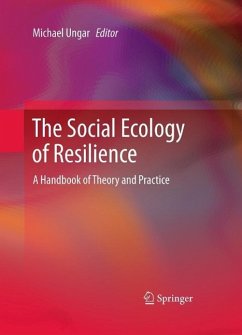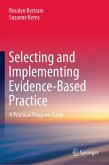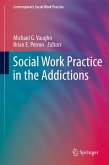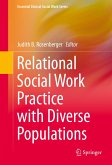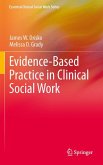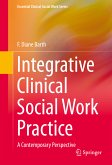In a time of increasing exposure to personal psychological stress, as well as war, natural disasters, and economic upheaval, positive development under adversity-resilience-is meriting wider and deeper study. Despite this attention and over four decades' worth of robust literature, resilience remains difficult to define and even harder to measure.
Taking the view that resilience is a process to be developed and nurtured rather than a hard-wired capacity of the individual, The Social Ecology of Resilience explains how interactions with school, family, community, and culture can provide ingredients for positive development. Case studies representing international and cross-disciplinary perspectives (e.g., Aboriginal youth in Australia, refugees in Sudan, and gay teens in the U.S.) demonstrate resilience across cultures and the lifespan. And interviews with healers and activists who have themselves survived trauma reveal resilience as a set of processes that can be both learned and taught.
Featured in the coverage:
The up-to-date data and real-world viewpoints in The Social Ecology of Resilience will be of great interest to those working with this elusive concept, including social workers, psychologists, students and professors in family relations, and researchers in social policy.
Taking the view that resilience is a process to be developed and nurtured rather than a hard-wired capacity of the individual, The Social Ecology of Resilience explains how interactions with school, family, community, and culture can provide ingredients for positive development. Case studies representing international and cross-disciplinary perspectives (e.g., Aboriginal youth in Australia, refugees in Sudan, and gay teens in the U.S.) demonstrate resilience across cultures and the lifespan. And interviews with healers and activists who have themselves survived trauma reveal resilience as a set of processes that can be both learned and taught.
Featured in the coverage:
- Causal pathways and how social ecologies influence resilience.
- Situating resilience in developmental contexts.
- Fostering recovery, sustainability, and growth in traumatized communities.
- Resources that promote resilient parenting.
- Children with disabilities and the supportive school.
- Indigenous perspectives on resilience.
The up-to-date data and real-world viewpoints in The Social Ecology of Resilience will be of great interest to those working with this elusive concept, including social workers, psychologists, students and professors in family relations, and researchers in social policy.
Dieser Download kann aus rechtlichen Gründen nur mit Rechnungsadresse in A, B, BG, CY, CZ, D, DK, EW, E, FIN, F, GR, HR, H, IRL, I, LT, L, LR, M, NL, PL, P, R, S, SLO, SK ausgeliefert werden.

